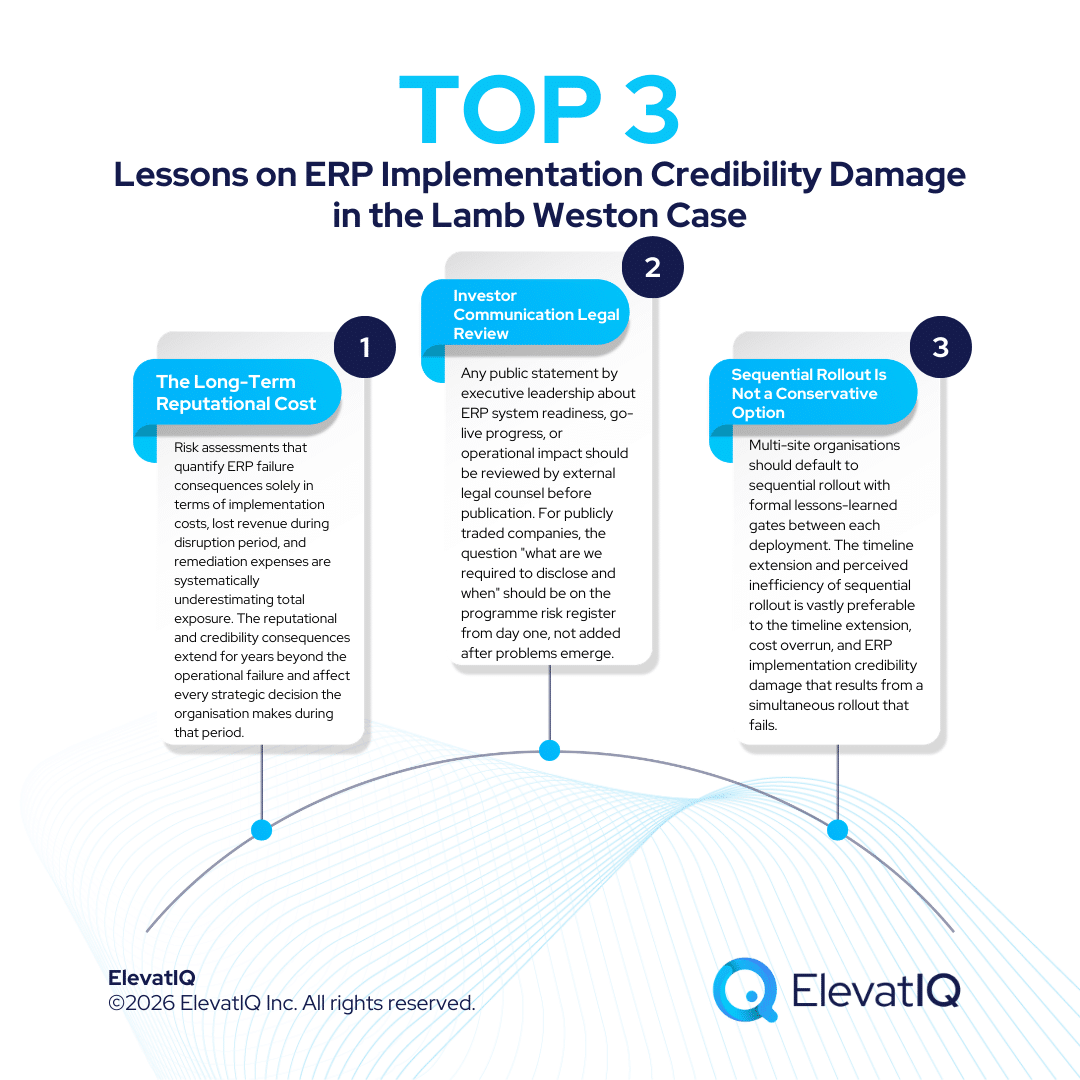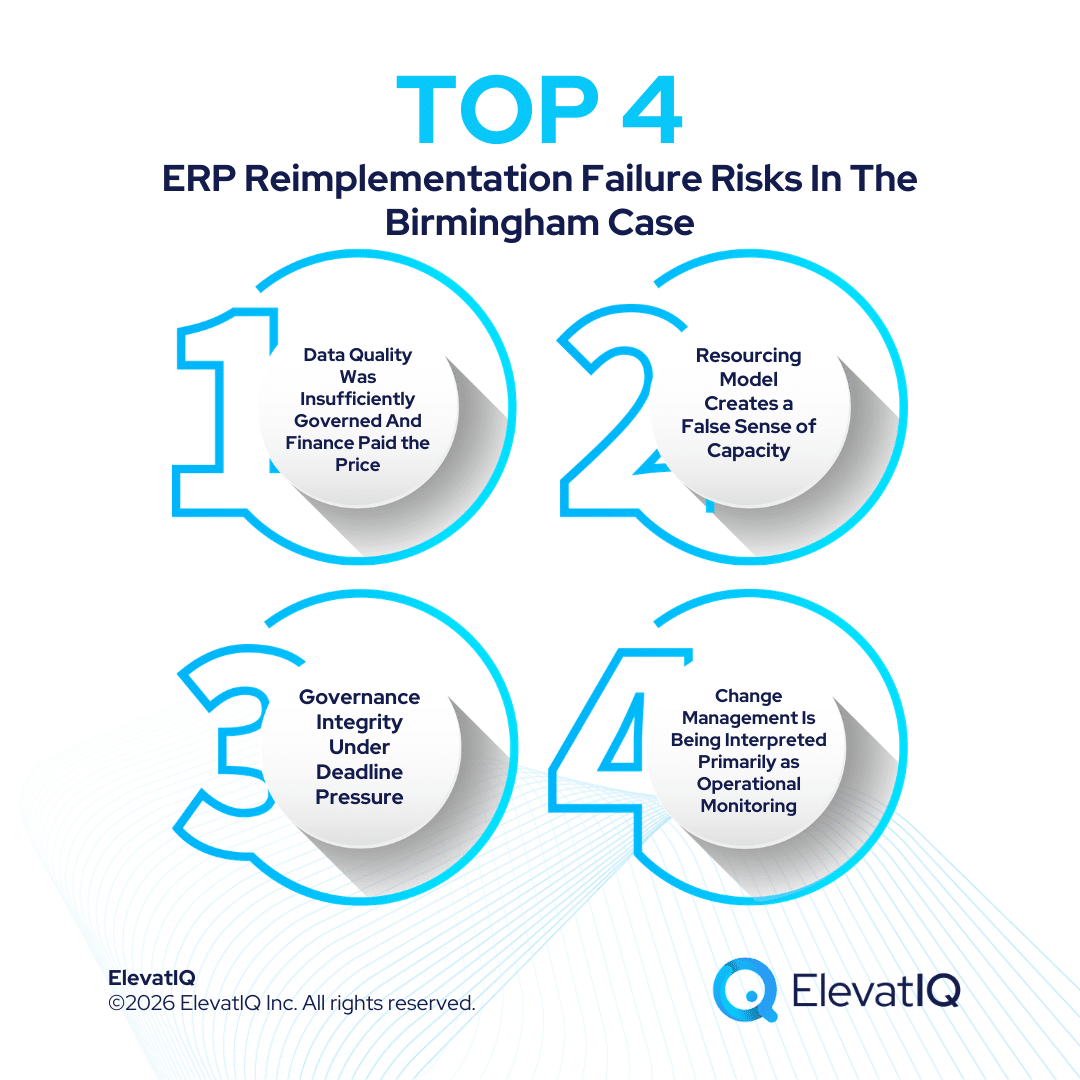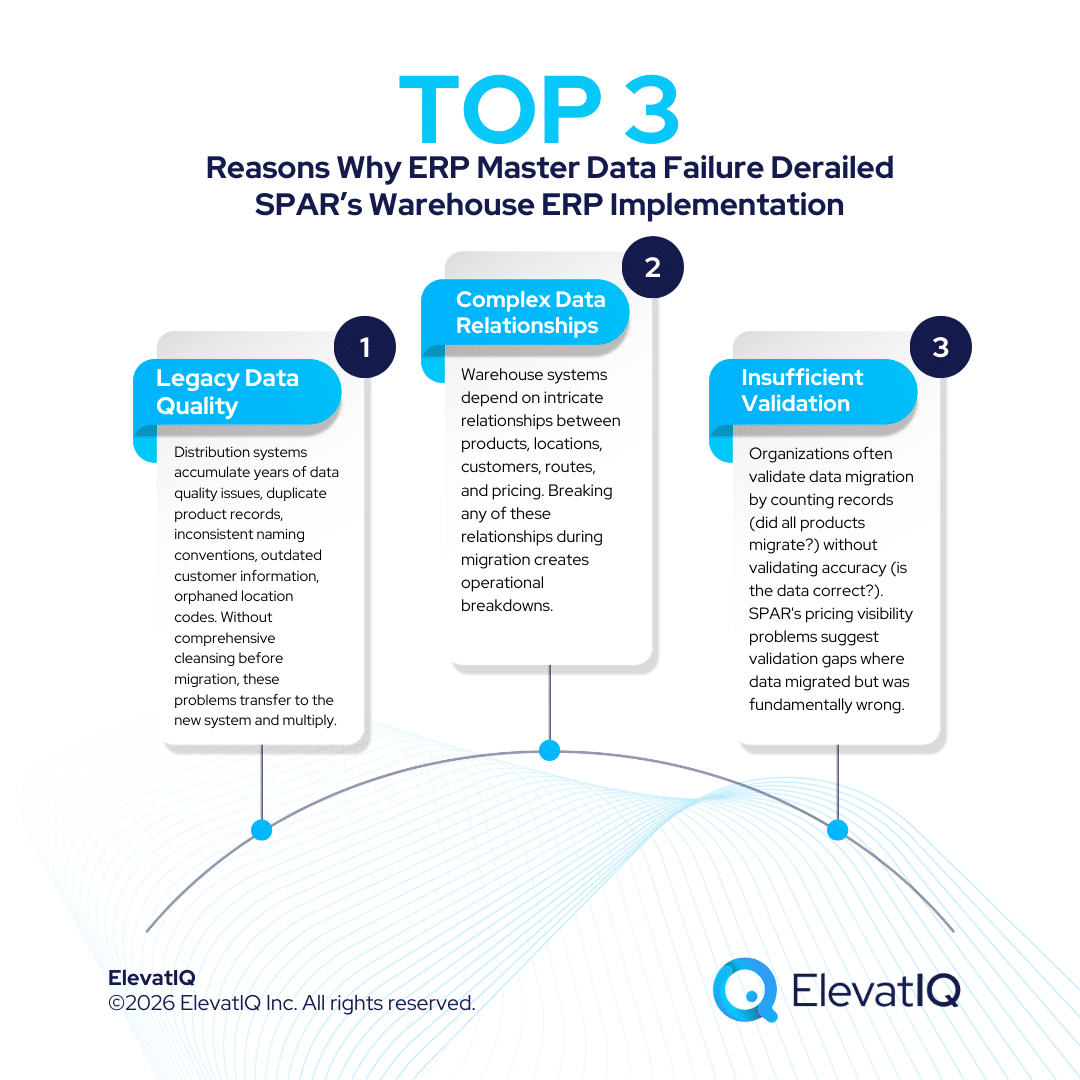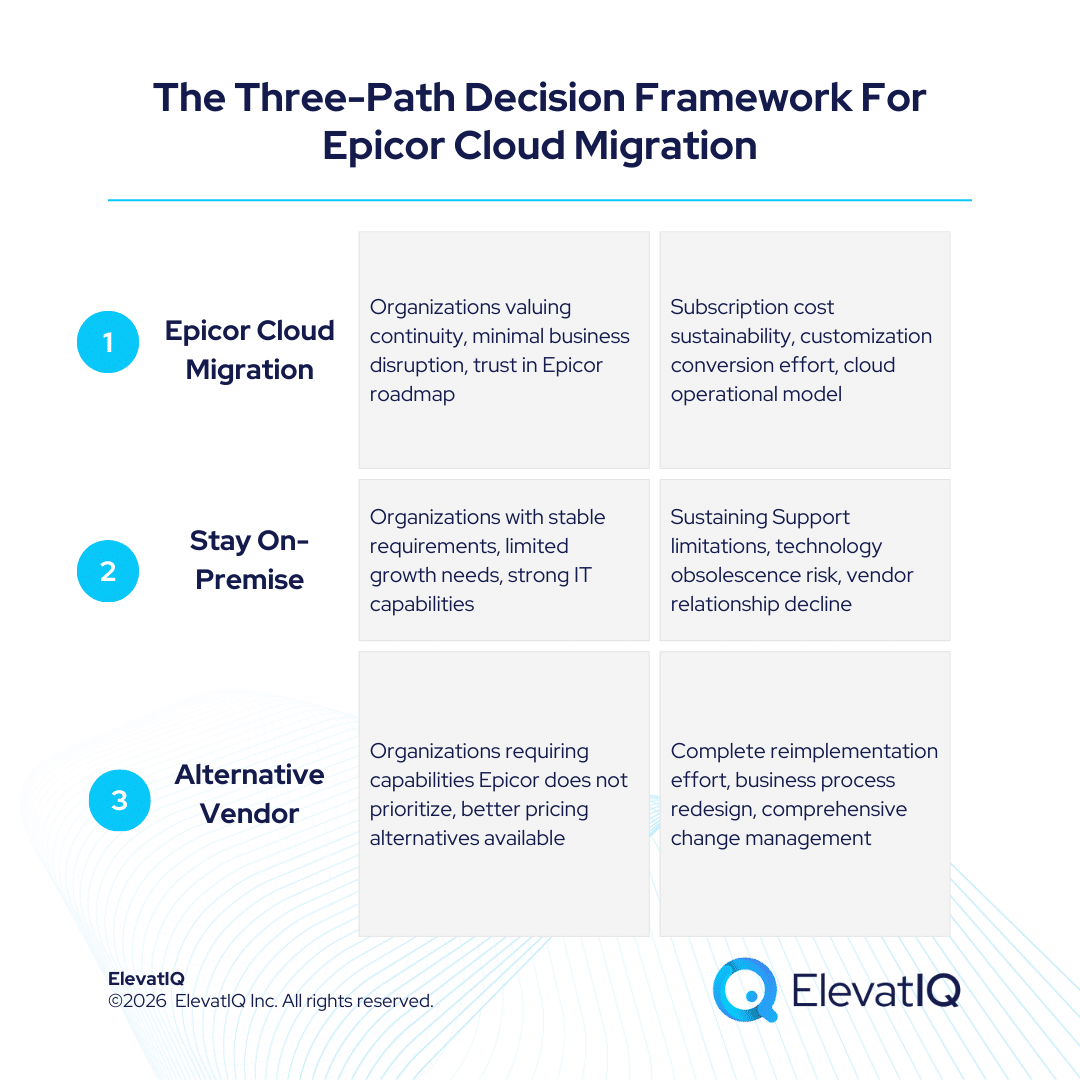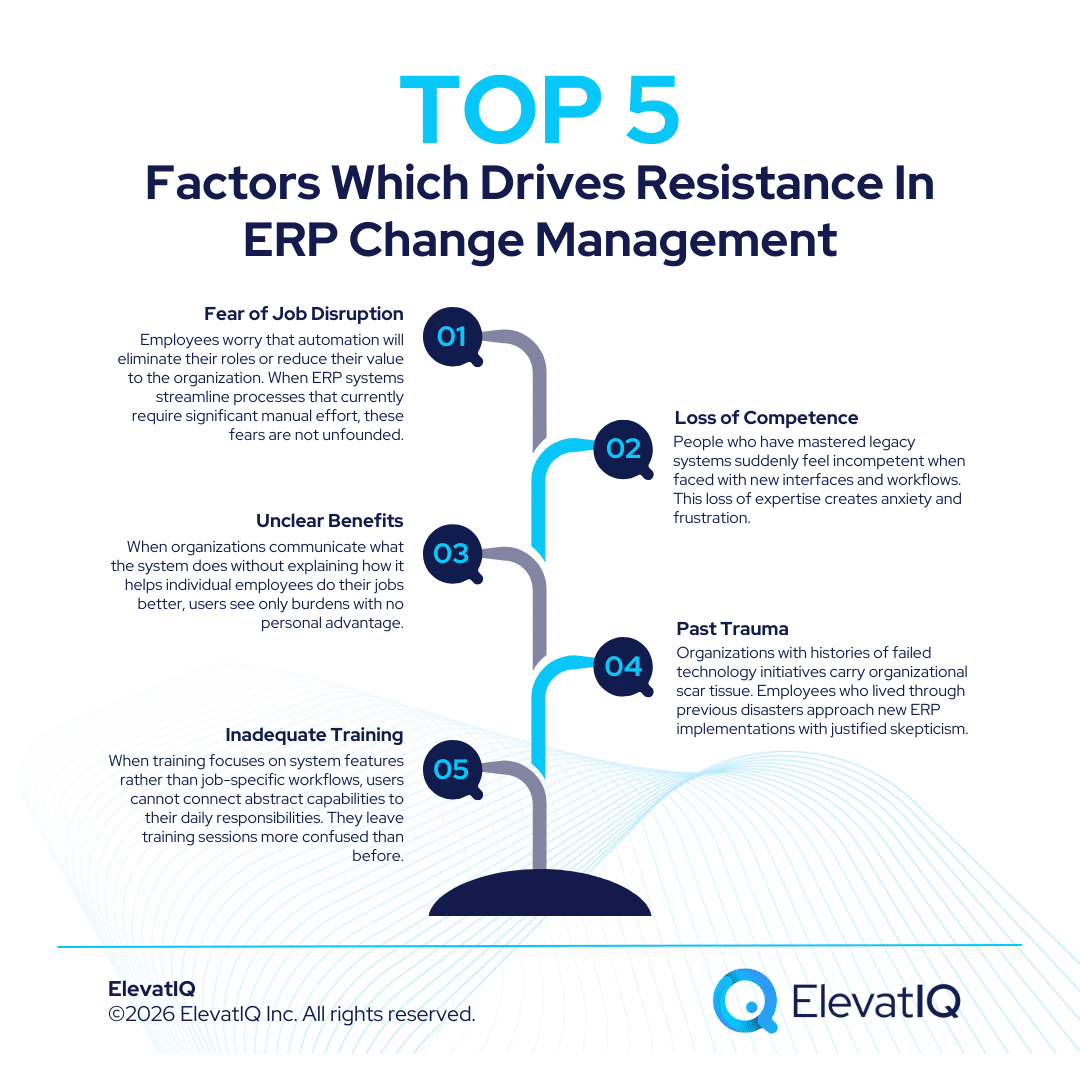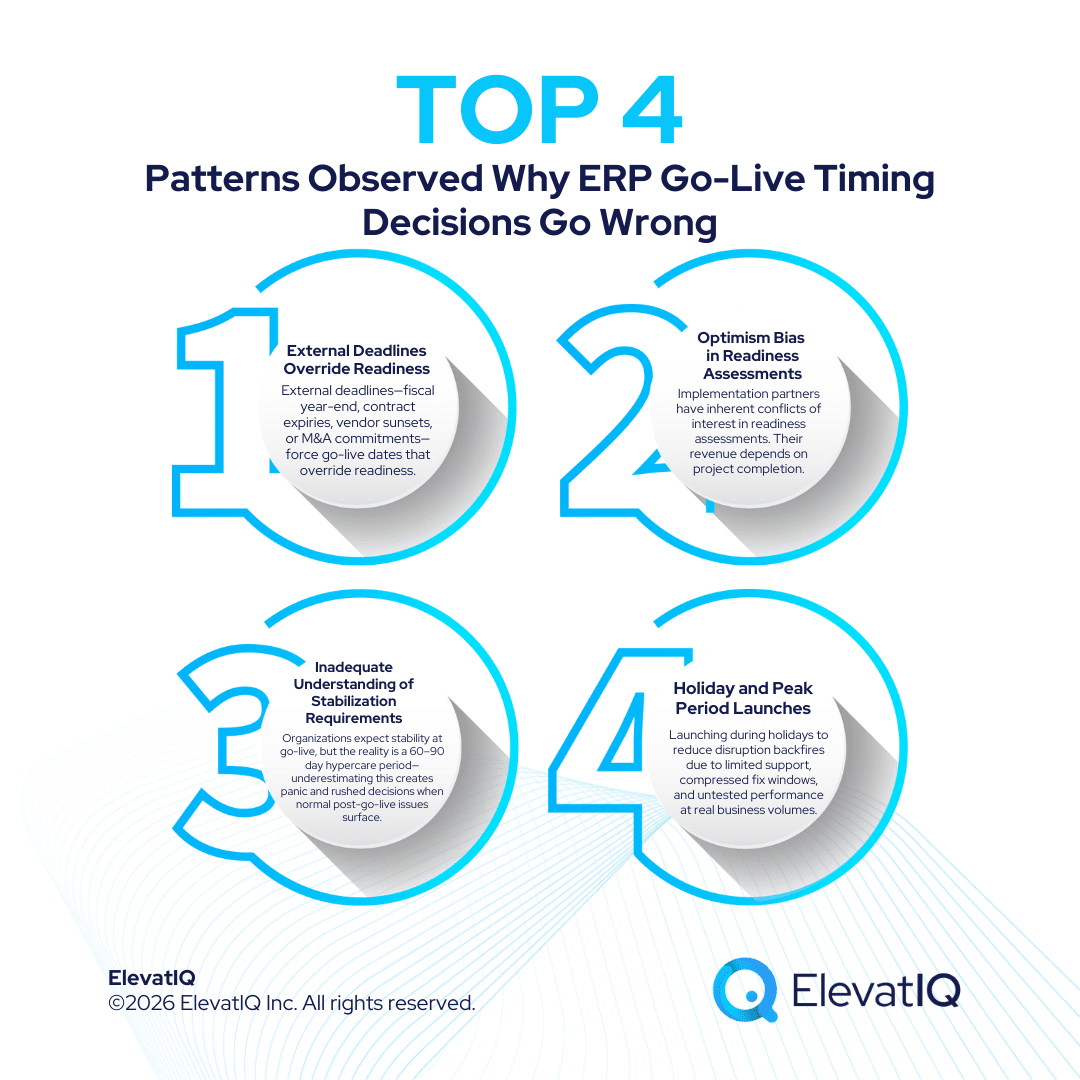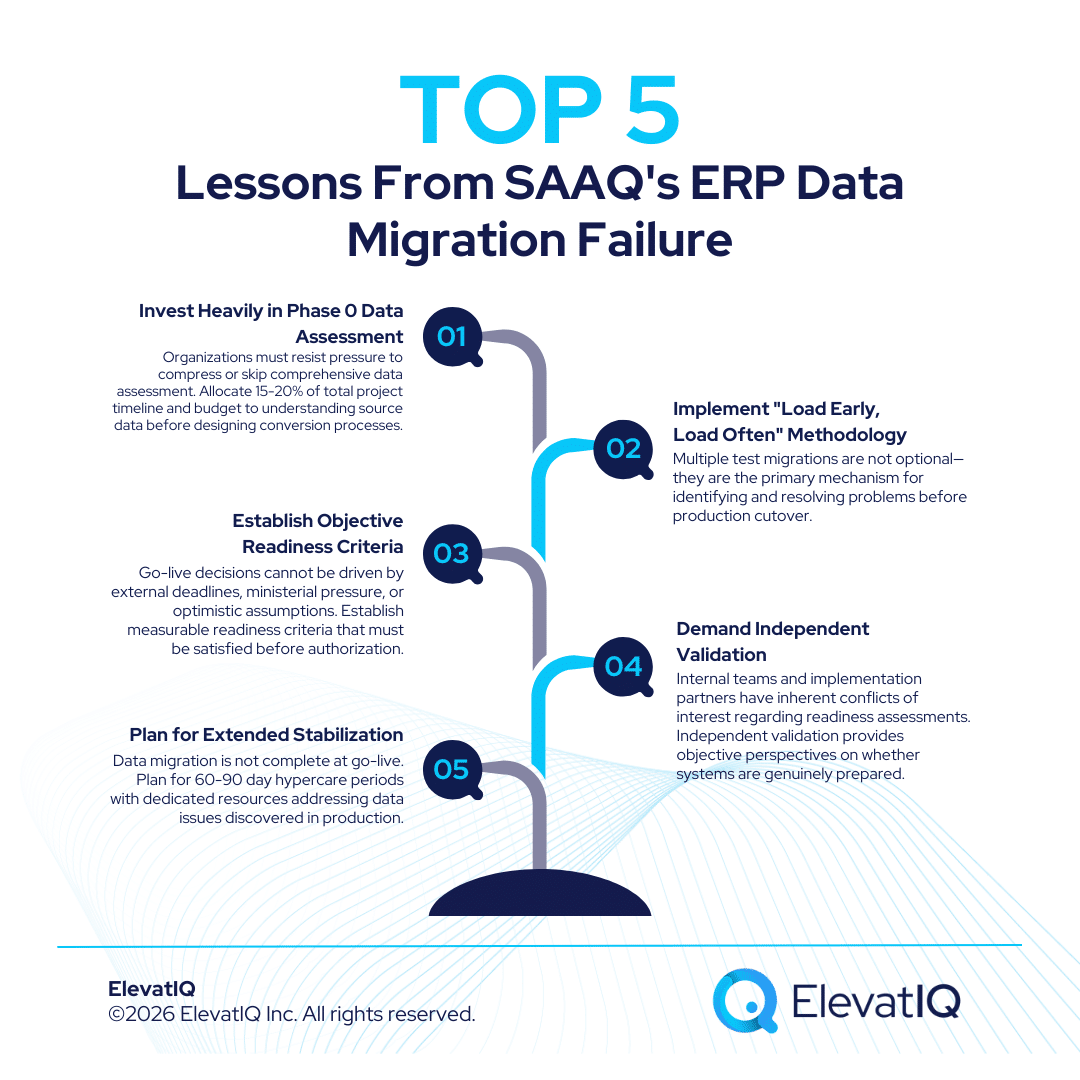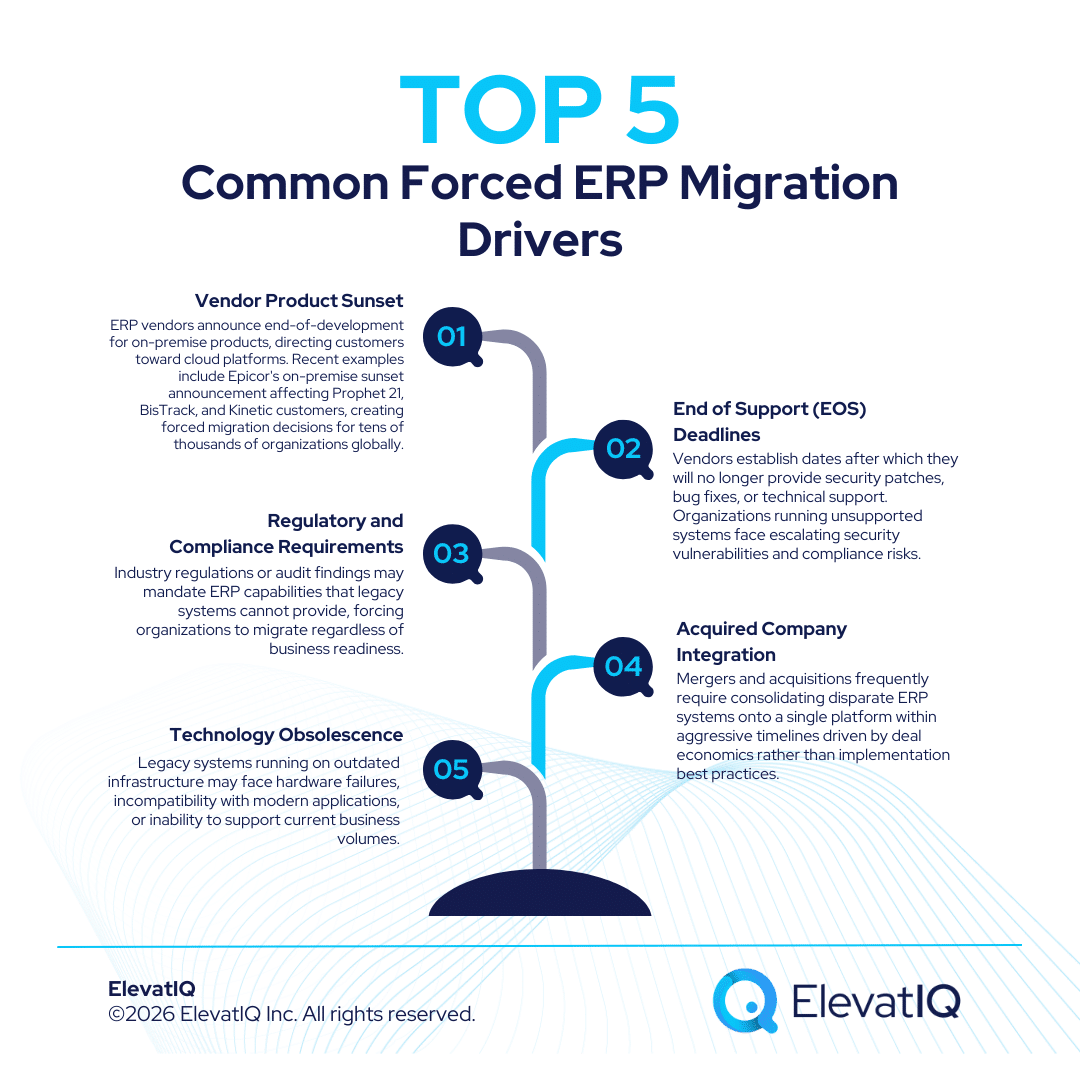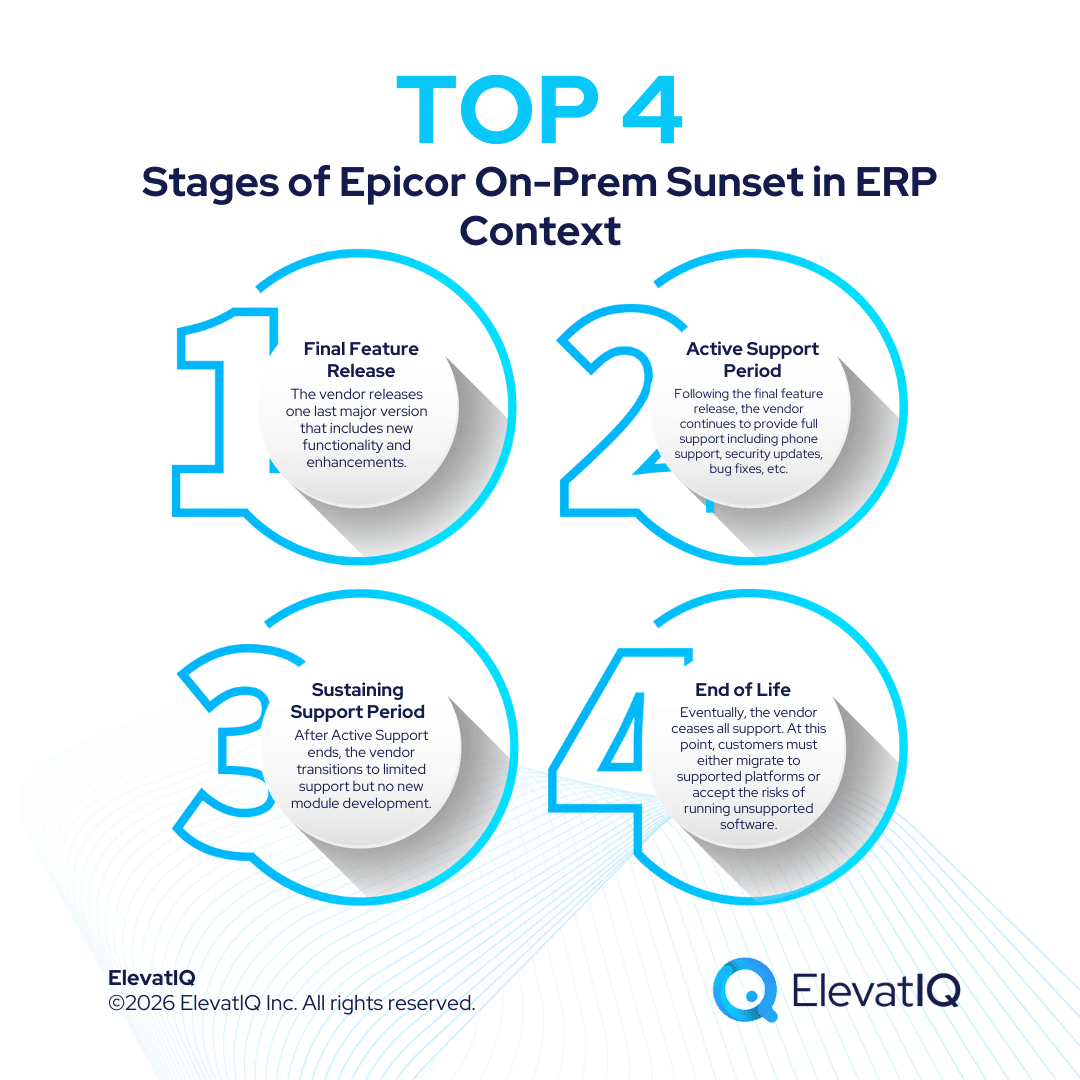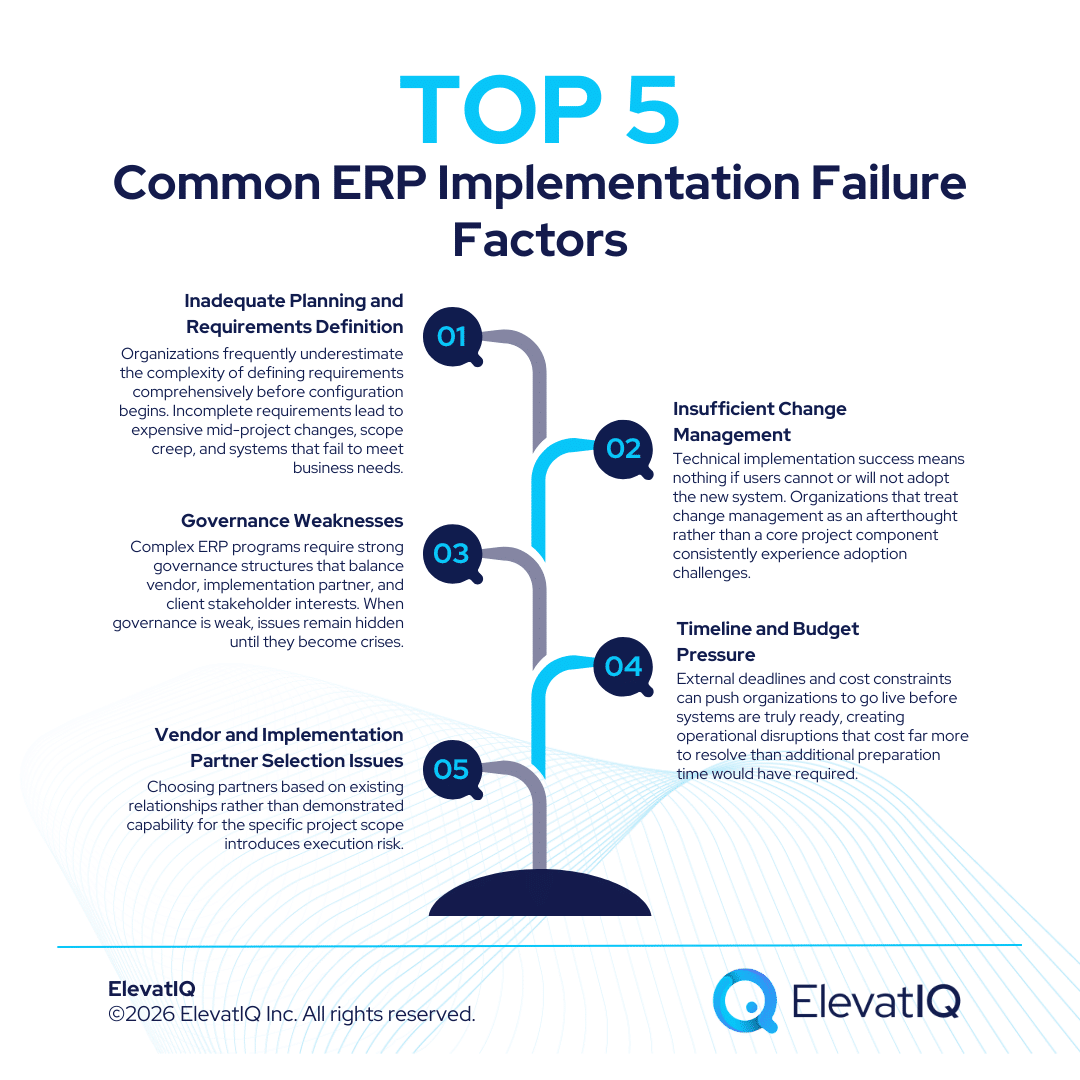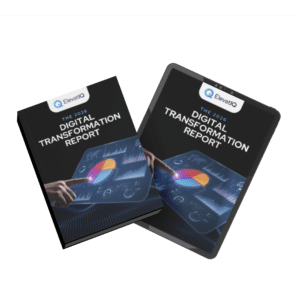AI-Enablement without Disruption or Failures
Through the structured approach of selecting the right artificial intelligence technologies, the proven approach of implementation, and recovering derailed and failed artificial intelligence projects.
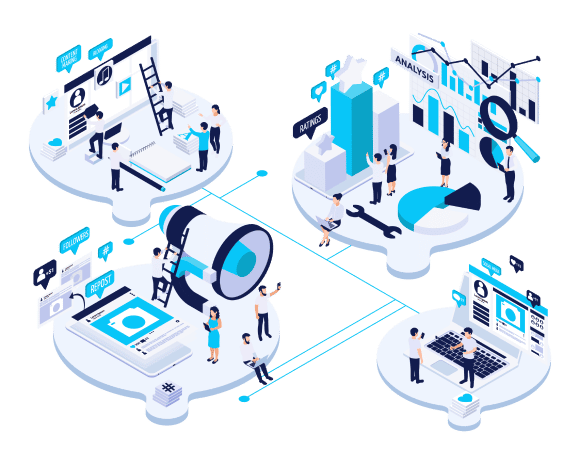
Problems We Solve for Companies
Exploring AI-Enablement
Our customers, before engaging with us, were unsure of how to take advantage of newer artificial intelligence-driven business models or technologies – and how to enable them for their internal systems and workflows. They had tried several artificial intelligence technologies or projects on their own but failed to realize business value.
Unclear Direction for the AI-enablement Journey
Confused about where to begin with AI enablement? Unsure how to move from point A to point B? Overwhelmed by too many options and lacking a clear decision-making framework? Are your teams exploring technologies without a strong business case? ElevatIQ can help clarify your approach—refining your needs, building team consensus, and outlining multiple options with their respective pros, cons, risks, and rewards.
Limited Confidence in Signing Multi-million Dollar AI Contracts
Unsure how to structure a formal AI procurement process? Need benchmarks to drive confident decision-making? Struggling to identify the right questions that build trust in your approach? Do you have a clear method for sourcing and evaluating vendors? Could expert guidance through vendor engagement and negotiation help you feel more confident in your final selection?
Legacy Business Processes and Data
Facing process or data challenges and wondering if AI could help? Unsure whether the root cause lies in your processes, technology, or both? Do you have a clear vision of your future AI-enabled operating model? Have you considered how agentic and human processes, data, and systems will work together? Are you ready to build a model that can support and sustain AI-driven transformation?
Limited Experience with AI-Enabled Target Operating Model Implementation and Management
Are you ready to implement your AI-enabled target operating model? Do you know how to align agentic and human processes, data, and technologies? Are your teams and vendors working together effectively? Do you have a plan to adapt the model as assumptions change? Is your operating model flexible enough to keep up with evolving business needs?
Lacking AI-native Customer Experience and Operational Efficiencies
Curious how your peers and competitors are using AI to transform their Cx workflows? Want to understand how AI-native experiences differ from traditional ones? Are you unsure which AI-native customer experience and operational efficiencies options are right for your organization? Would a rapid, structured roadmap help guide your next steps?
Derailed AI Transformation Initiatives
Is your AI project off track or struggling to deliver results? Are you facing operational disruptions or unpredictable rising costs because of your derailed implementation? Have you reviewed your implementation plans, requirements, and architecture? What about testing, migration, and communication strategies? Do you need a clear roadmap to recover and move forward with confidence?
Want to learn more about why independent advisors have a higher success rate with digital transformation initiatives?
Our Case Studies for
AI-Enablement Projects

ECommerce Supply Chain Transformation With ERP Selection
Download the eCommerce Supply Chain transformation case study and learn how LockNLube transformed its inventory and supply chain challenges by consolidating over 20 systems. As well as by creating business, process, information, and system architecture as they prepare for the next phase of their growth.

ERP Implementation Failure Recovery
Download the ERP implementation failure recovery failure case study and learn how Frederick Wildman struggled with Microsoft Dynamics 365 ERP implementation failure even after spending over $5M and what options they had for recovery.

ERP Optimization and Integration Architecture Development
Download the ERP optimization and integration architecture development case study and learn how Work Sharp fixed their broken ERP implementation that caused customer service issues and improved Supply Chain planning.
How is ElevatIQ different?
Other Artificial Intelligence Consulting Firms?
Unlike other artificial intelligence consulting firms, ElevatIQ’s expertise is not just limited to technical and architectural needs. ElevatIQ has much deeper capabilities with process transformation, reengineering, and post-merger integrations.
Most other artificial intelligence consulting companies focus only on strategy, processes, system selection, or implementation, requiring you to make critical system selection and process decisions with millions of dollars at stake. With limited experience, your team will never be confident in making these decisions or signing multi-million-dollar contracts. ElevatIQ helps you throughout the process, facilitating a democratic, educational, and comprehensive experience while also helping you navigate complex contract clauses and negotiate with all AI vendors involved.
ElevatIQ tracks over 2,000 enterprise software vendors, monitoring both macro and micro-level updates. With this deep subject-matter expertise, ElevatIQ helps organizations gain a clear understanding of each AI vendor and technology—and how they can work together to enable your future AI-driven state.
Our engagement model spans the AI technology selection, implementation, and post-implementation phases, enabling us to track AI solutions and service provider success at a granular level. This proprietary data empowers you to make informed decisions about AI technology procurement and adoption. Without such insights, organizations often face challenges in building team consensus, increasing the risk of AI transformation failures.
Building a vendor-agnostic AI-native architecture requires drawing data and interaction flows between different entities, departments, processes, and systems. It also requires you to identify the source of truth for each shared dataset. And a lot more! There are very few firms like ElevatIQ that have deep expertise in building AI-compliant enterprise architecture that scales.
The state of AI-native enterprise software (and as a result, its pricing and licensing) keeps changing on a daily basis. Making informed systems decisions requires a deep understanding of macro and micro forces, along with a deep subject matter expertise of each AI vendor and their contractual nuances. Without such expertise, these decisions fire back, causing operational disruptions and surprise bills. ElevatIQ’s deep expertise with software contracts and AI technology vendors helps reduce unnecessary operational, financial, and customer experience risks.
While most other strategy and system selection consulting firms barely use an off-the-shelf AI tool to manage their processes (with questionable productivity gains and quality), we have developed proprietary AI IP to reduce time for data analysis. risk detection, requirements capture, data migration, and system testing – resulting in faster and cheaper AI technology selection and implementation.
Want to learn more about how ElevatIQ is better qualified than other Artificial Intelligence consultants?
Check Our Popular Artificial Intelligence Blogs
Our
Artificial Intelligence Consulting Services
ElevatIQ’s artificial intelligence consulting services include AI-enablement strategy and planning, AI-enabled process and data transformation, AI-native Cx and Operational Strategy, AI Technology Procurement Decision Support, AI implementation and change management, and AI project recoveries.
AI-Enablement Strategy and Planning
Our AI Strategy and Planning begins with a deep assessment of your current challenges, followed by a rapid roadmap outlining multiple paths forward—whether through modernizing existing systems or adopting new technologies. Each option is supported by a detailed business case, highlighting its pros, cons, risks, and potential rewards.
AI Technology Procurement Decision Support
This service supports formal procurement processes for AI technologies, including conducting benchmarks to inform decision-making. Once potential solutions are identified, ElevatIQ helps develop a structured RFP and consensus-building framework, source potential vendors, and facilitates vendor engagement—guiding negotiations until the client is fully confident in their selection.
AI-enabled Process and Data Transformation
This service supports clients facing specific process or data challenges and exploring whether AI could be the solution. It's also well-suited for organizations unsure if their issues stem from processes, technologies, or both. ElevatIQ helps define a comprehensive, AI-enabled target operating model that integrates all critical dimensions—agentic and human processes, data, and systems—needed to enable and sustain a successful AI-driven transformation.
AI Implementation and Change Management
This service supports the implementation of the target operating model by integrating key dimensions—including agentic and human business processes, data, and technologies. ElevatIQ works closely with end users and vendors to continuously recalibrate the model as assumptions shift and business context evolves.
AI-native Cx and Operational Strategy
This service helps companies understand how their peers and competitors are leveraging AI to transform their Cx workflows and operations. It also clarifies how AI-native workflows and experiences differ from traditional, non-AI approaches. As part of the engagement, ElevatIQ develops a rapid roadmap outlining various options—each with a clear view of the pros, cons, risks, and potential rewards.
AI Project Recoveries
This service focuses on recovering and rescuing struggling AI projects, including collaboration with technology lawyers for mediation, arbitration, or litigation support. Organizations without a clearly defined target operating model often face operational disruptions and challenges in controlling costs. ElevatIQ conducts a comprehensive assessment—reviewing implementation plans, requirement states, architectural documentation, testing strategies, migration and communication plans, and active contractual obligations—to develop a clear, actionable roadmap for getting the project back on track.
Check Our Popular YouTube Videos
Manufacturing Playlist

0:16


0:16

0:16

Our Methodology
for AI-enablement
Our methodology begins with a thorough assessment of your current processes, business objectives, and technology architecture. Based on this evaluation, we develop an AI-native target operating model and digital roadmap outlining the changes needed across processes, data, and systems. Once the executive team and board approve the direction, we create a phased action plan—prioritizing quick wins and high-impact initiatives. This plan may include AI technology procurement, new implementations, or optimization of existing systems.
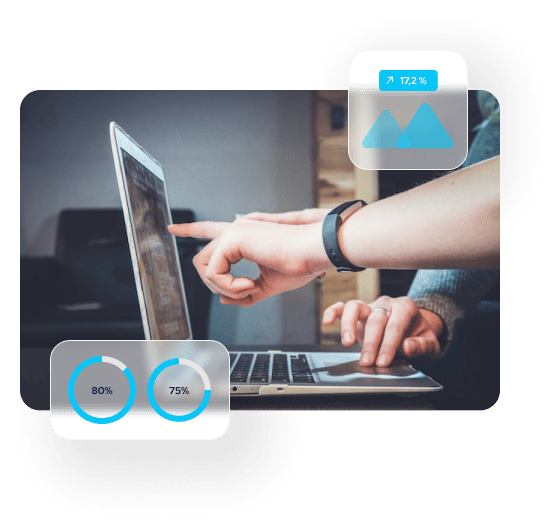
1 Assessment
Through the primary and secondary research, this assessment digs into your datasets, transactions, and processes to explore the business case for AI-native processes, a strategy for AI-enablement, and a phased approach to execute recommendations.
3 Solution Selection and Procurement
This phase identifies the solutions to be replaced in the target operating model, initiates a formal procurement process, and updates the model based on new insights uncovered during RFPs and demos. It manages the end-to-end procurement lifecycle for each AI technology and vendor, delivering a holistic view—covering legal, financial, technical, and adoption considerations—so the executive team can make informed decisions and minimize risks in future phases.
5 Change Management and Implementation
This step delivers a logical, sequential, and comprehensive implementation of the AI-native target operating model, addressing all key dimensions—business processes, data, technology, and systems. It involves close collaboration with end users and implementation teams, continuously refining the model as new constraints emerge and assumptions evolve.
2AI-native Target Operating Model Creation
This phase develops a technology-, solution-, and vendor-agnostic AI-native target operating model that spans key dimensions—agentic and human business processes, data, technology, and skillsets. It identifies required changes and maps their impact across departments and individual roles, enabling stakeholders to visualize how changes affect them before committing to a system they may not adopt. The exercise also analyzes existing technical and process backlogs, aligning them with the AI-native technology data and process dictionary to support scalability and reduce friction in business operations.
4 Target Operating Model Recallibration
This step recalibrates the target operating model to reflect the process and data constraints of the selected AI technologies before transitioning to implementation teams. Depending on client needs, it can be completed either before or after contract signing. It may also involve multiple proof-of-concepts to identify last-minute risks before committing to long-term agreements. Most importantly, it gives teams a final opportunity to visualize their workflows and surface potential adoption challenges.
6 Optimization and Continuous Improvement
This step closely monitors the updated workflows, user behaviors, and the newly implemented AI-enabled state. As the context evolves, it may require adjustments to master data governance, technical constraints, or business processes to maintain alignment with the AI-enabled target operating model—ensuring business value is realized and adoption remains strong.


